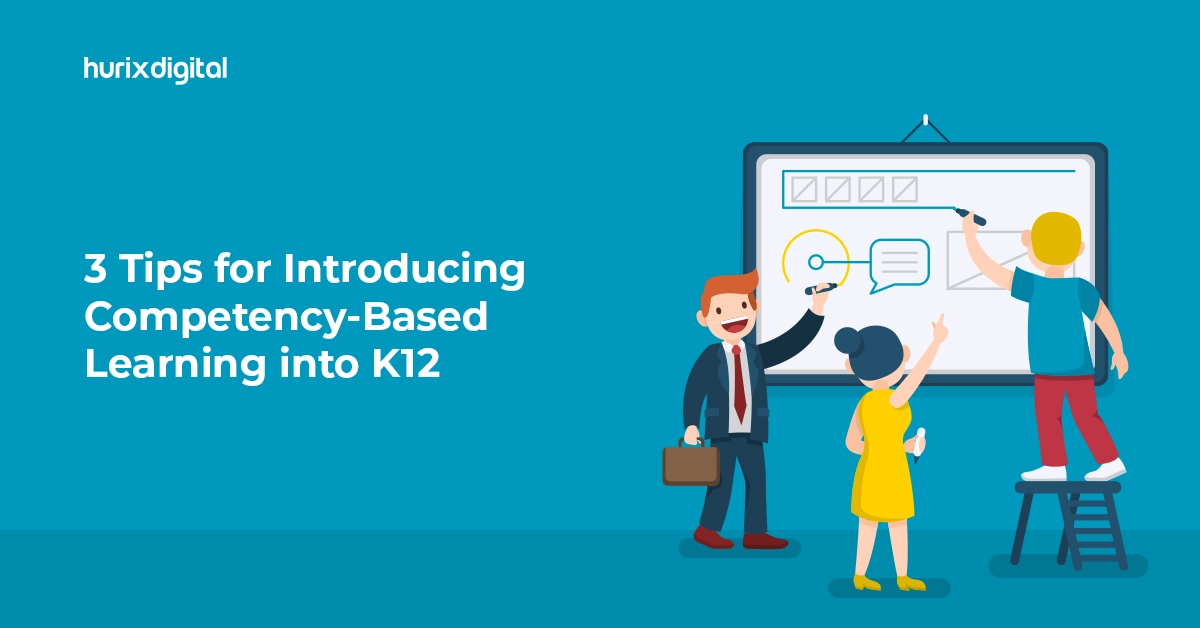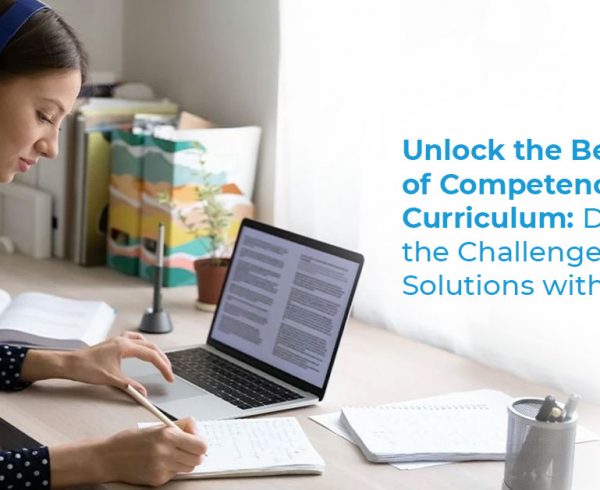In recent years, competency-based education (CBE) has garnered much focus from universities and colleges worldwide. One of the main reasons for its popularity is an improved chance of employability for students. Other factors such as affordability and its flexible structure ensure that this is not just a passing trend.
Competency-based learning facilitates career development since there’s a great emphasis on mastering skills than merely completing credits in a program. Based on the preferred or chosen field of study, students channel all their attention into perfecting their competencies and becoming employable in the future.
In a competency-based program, learning outcomes are what determine the success and not the number of classroom hours. Until they demonstrate the proficiency needed for their domain, they cannot progress to a higher level. That said, a great perk of competency-based learning is that students can proceed at their own pace.
This blog explores how CBE prepares students for employment in detail.
How is Competency Based Education (CBE) different from traditional learning?
The conventional model of learning differs from competency-based learning in various aspects, including the structure, learning outcomes, and grading:
- Structure: In the former time-based model, the curriculum or structure is set in advance. Each student is required to move forward even if they have not fully mastered the relevant skills. On the contrary, CBE focuses on individual capabilities and supports students in their learning journey until they are proficient in their field of study.
- Learning outcomes: Memorization is how learning outcomes are achieved in the traditional model, while competency-based education prioritizes a deep understanding of the concepts through application. This way, students develop an attitude to become life-long learners, a necessary trait that’s required throughout their professional lives. The goal is not just to “pass the test” but develop the skills and capabilities specific to their domains.
- Grading: Behavior, assignments, and test scores determine the grades in the traditional learning approach. On the other hand, competency-based learning scores are evaluated based on each student’s performance levels without any bias. Educators use creative and personalized assessments to check each student’s progress.
Listed below are some of the attributes and skills used to judge the performance of students:
- Critical thinking and problem solving
- Empathy and global stewardship
- Curiosity and imagination
- Oral and written communication
- Resilience and grit
- Vision for the future
- Agility and adaptability
- Self-regulation, hope, and optimism
- Initiative and entrepreneurialism
- Collaboration across networks
Without a doubt, these are highly desirable attributes in an employee and make students employable for the future.
What do educators think about Competency Based Education (CBE) ?
The advantages of competency-based learning have greatly impacted educators and higher education learners alike. This model has shattered the belief that learning must happen within a classroom and should be time-bound.
Instead, it transforms students into life-long learners. Moreover, it focuses on personalized learning, demonstration of mastery, and research-based learning. In 2018, the American Institutes for Research and Eduventures conducted a survey called the National Survey of Postsecondary Competency-Based Education (NSPCBE).
Its findings suggest that nearly 95% of institutions surveyed showed interest in CBE activity. The respondents reported that improving learning outcomes is their biggest motivation for adopting competency-based learning.
Apart from that, 55% of them regard this program as a means to improve opportunities for nontraditional students. The statistics only highlight the fact that educators feel positive about this skill-based approach.
Factors that improve students' employability
This section explains the main features of competency-based education that shape the students’ future by enhancing their employability.
1. Building skills for life
In competency-based education, the learning objectives are the competencies to be developed by the student. Instead of just knowledge, the emphasis is on understanding the practical aspects of the domain.
The school leadership defines these competencies in advance that primarily include:
- Comprehension of key concepts
- Ability to apply knowledge
- Dexterity of relevant skills
When students apply for their first job, they don’t have any experience. However, these skills can tremendously increase their chances of getting hired.
2. Taking ownership of work
The goal of each class shouldn’t just be available to teachers. Instead, both parents and students should be clear about the learning objectives.
Before starting the class, students must know:
- What they will learn
- How mastery is defined
- How they will be evaluated
With an end goal in mind, students tend to take more responsibility and accountability for their education. For instance, to design a small garden, they need to apply the skills learned in math class.
When learners understand the need and objective, they take ownership. As a result, they become better learners, which is a key attribute required in an employee. In any organization, employees need to be able to upgrade themselves and use their new skills to better themselves and contribute to their organization.
3. Preparing for real-world experience
Competency-based education (CBE) offers a way to look beyond just accomplishing grades. Gaining real-life skills is what’s in demand these days. The goal of competency-based education is to groom students to become future leaders in their field.
Irrespective of the faculty chosen, including healthcare, engineering, writing, etc., students can truly become experts in their field and use their knowledge in the companies they’re hired in. On the other hand, a tangible experience is what’s missing in traditional learning.
4. Developing a culture of learning
Another great feature of competency-based education (CBE) is that it’s purpose-driven. A vibrant culture and a clear purpose are its very foundation. Moreover, it’s a perfect blend of relationships, opinions, and values – something that is quite desirable in any organization.
Competency-based education promotes a culture of learning and empowers a distributed leadership.
Conclusion
Competency-based education allows students to learn and master real-life skills. Moreover, students can develop various other attributes, including adaptability, resilience, communication, imagination, critical thinking, entrepreneurialism, etc.
It prepares students for a world beyond their classrooms. They can thus overcome real-life challenges and adapt to the culture of an organization with ease. So get in touch with our team now to get started!










